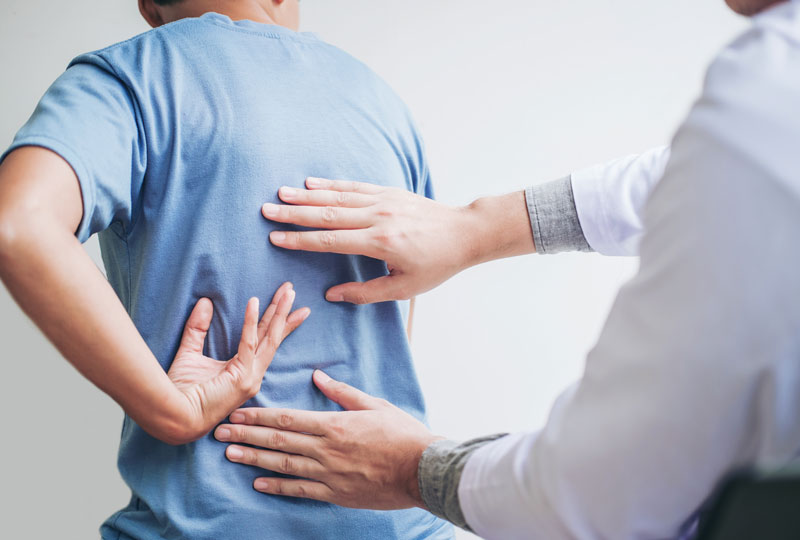A spine specialist walks us through abnormal curvatures of the spine in adults, providing hope for those searching for treatment options.
Byron F. Stephens, M.D., likes to tell people that the spine has two main jobs to do.
“The first is to house and protect the spinal cord and nerve roots,” explained Stephens, a Vanderbilt Orthopaedics surgeon who sees patients at Vanderbilt Spine Center. “The other job is to hold your head above your sacrum — your pelvis — in both the frontal and lateral planes. Typically, spinal deformity patients present to us when it fails in one of those two jobs.”
That failure could look like this: You might notice a shift in your balance, or that your head or shoulders feel slightly off to one side. Or you might suspect an asymmetry in your waist, or perhaps that your posture feels more forward — or even that it’s harder and harder to stand up. Curvatures of the spine in adults can also present as a pinched nerve, with pain radiating down your leg.
“These are typically the symptoms that drive people to come in for a visit,” Stephens said. “Their deformity has gotten so severe that it’s affecting their day-to-day life.”
Types of adult spinal deformity
An adult spinal deformity is any deformity in the frontal (side-to-side) or lateral (forward/backward) planes of the spine, either resulting from degenerative changes in the spine or from developmental deformities. Stephens explained that you can group these deformities into two groups: scoliosis and kyphosis.
- Scoliosis refers to an abnormal sideways curving of the spine. The most commonly diagnosed type is degenerative scoliosis, which is more common in the lumbar spine (your lower back) and occurs due to asymmetric degeneration of the spinal discs. “We all develop degenerative disc disease,” Stephens explained. “It’s just a part of life. However, most of us experience symmetric degeneration. For a select few, it begins in an asymmetric manner, and that sets of a cascade of further asymmetric degeneration.” There’s also adult idiopathic scoliosis, which is a continuation of scoliosis present during childhood. This type is most common in the thoracic spine (your middle-to-upper back).
- Kyphosis: This refers to a front-to-back curving of the spine, which can be naturally occurring or induced by a prior surgery. “As we gain more and more birthdays,” Stephens said, “the spine can develop progressive kyphosis. But a more common cause is that someone had a surgery that resulted in suboptimal alignment.”
Non-operative treatments for adult spinal deformity
“In terms of treatment,” Stephens said, “we always try to maximize non-operative methods. Most people with adult scoliosis will not require surgery. Instead, we craft a plan for them that might include physical therapy, aquatic therapy or non-narcotic medications.” Stephens also explained that for some patients, injections are a good option, as are yoga and spiral pilates, which incorporates core stabilization along with twists and curving motions.
Surgical options for adult spinal deformity
If non-operative treatments do not provide relief, the good news, Stephens said, is surgery is effective for appropriately indicated patients. “Thankfully there’s good medical evidence that supports the utilization of surgery for adult deformity patients and shows pretty convincingly and dramatically that it improves patients’ function, improves their pain and improves their quality of life,” he said.

Help in Hendersonville
Vanderbilt Orthopaedics clinic in Hendersonville is taking new patients who seek relief from back and neck pain and conditions involving the spine. We also treat injuries and chronic pain of the bone, muscle and joint. Our specialists work with you from evaluation and “prehab” through physical therapy and, if needed, surgery. We’ll help you get back to doing the things you love, pain-free. Download our back and neck treatment guide or schedule an appointment online.

